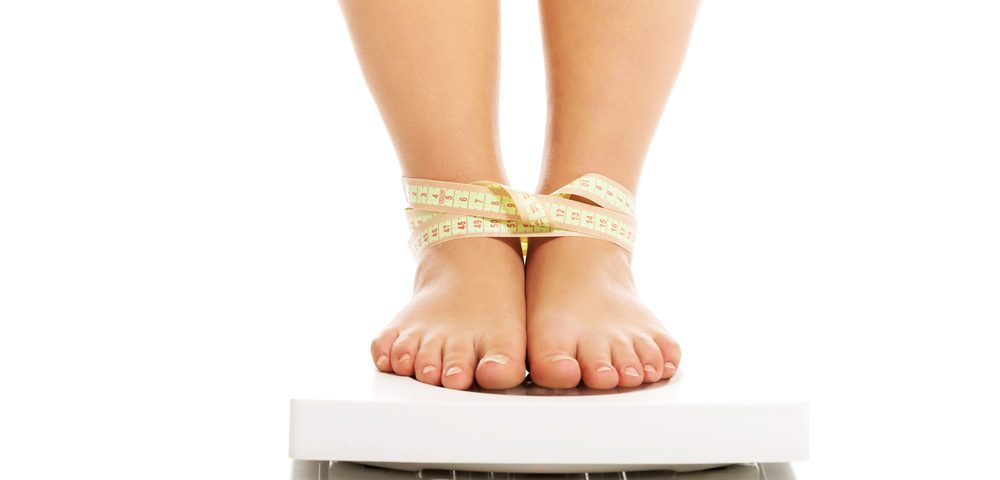According to the calendar, summer is half over. But here in Texas, the fact that meteorologists are predicting temperatures above 101 degrees for the next seven days means swimsuit season is not ending anytime soon.
Having a body ready for a bathing suit is difficult enough for a healthy person. For IBD sufferers, maintaining a positive body image can be close to impossible with the effects of the disease and the side effects of medications taken to ease symptoms.
I am 4 feet, 11½ inches tall — and that half-inch is important at my size. I bring up my height because when I talk about a change in weight of 5 to 10 pounds, that can be 5 to 10 percent of my body weight. My average healthy weight falls between 110 and 115 pounds. When my Crohn’s was at its worst, my rate fluctuated between 100 and 130 pounds. Both extremes made me self-conscious for different reasons.
I was my thinnest when I was first diagnosed. The obvious culprit was incessant diarrhea. When I could eat, everything went through me. As my symptoms progressed, I lost my appetite when nausea and abdominal cramping made eating unbearable. I forced myself to eat frequent, small meals until my disease worsened.
In a previous column, I wrote about how I lived on a liquid diet of protein drinks like Ensure after getting multiple mouth ulcers or canker sores. Within months, I was down to 100 pounds if not less. The last time I weighed that little was in middle school.
One day, I ran into a co-worker who had been dieting for several months. She told me I looked great and asked my weight-loss secret. Under any other circumstances, I would have loved receiving such a compliment. Instead, I resented the comment.
Soon after, my gastroenterologist started me on prednisone, a corticosteroid used to treat inflammation in the gastrointestinal tract. The medication’s side effects include increased appetite, water retention, and fat redistribution. I not only gained back the weight I lost, but also a few extra pounds along with it.
In addition to easing my symptoms enough for me to regain my appetite, the steroid made me ravenous. Before, I couldn’t eat. On prednisone, I couldn’t stop eating.
Prednisone also causes the body to retain sodium and lose potassium. This combination causes water retention, mostly in the hands, legs, feet, and face. My water weight went straight to my abdomen, thighs, and face.
Fat redistribution is another side effect of corticosteroids. Fat deposits can move to the abdomen and to the back of the neck, causing a “buffalo hump.” I experienced the classic prednisone “moon face,” where fat redistributes to the sides of the face, making it look rounder and wider.
No one told me I looked fat except my Asian family who comments on weight instead of saying hello. But I knew my weight gain was noticeable because as soon as I was taken off prednisone and lost the excess weight, friends and family commented on how svelte I had become.
One body issue unrelated to weight that still plagues me is abdominal bloating. The bloating isn’t so bad now that I’m in remission, but when I have a bad flare, it becomes visibly apparent. Being petite, when I bloat I can look like I’m in my first or second trimester. More than once, I’ve been asked about my nonexistent pregnancy — from a grocery store cashier who asked when I was due, to a co-worker who flat out asked me if I was pregnant in front of another colleague. Those are only two of several times I’ve been asked such questions over the years, and I have yet to come up with a better comeback than, “I’m not pregnant.”
IBD may be a physical disease that mostly affects the body internally. However, it can cause external effects that can lead to mental health issues, such as having a negative body image or low self-esteem. I’ve been able to maintain a somewhat positive image of myself, mainly because I often don’t care what people think and I know most of my issues are beyond my control.
However, I do suffer from “rolling-eye syndrome,” the involuntary movement of looking up and shaking my head in disbelief when someone says something ignorant or insensitive about my disease. Until doctors find a cure for stupidity and rudeness, I’m doing my part to educate others about IBD.
***
Note: IBD News Today is strictly a news and information website about the disease. It does not provide medical advice, diagnosis, or treatment. This content is not intended to be a substitute for professional medical advice, diagnosis, or treatment. Always seek the advice of your physician or other qualified health providers with any questions you may have regarding a medical condition. Never disregard professional medical advice or delay in seeking it because of something you have read on this website. The opinions expressed in this column are not those of IBD News Today, or its parent company, BioNews Services, and are intended to spark discussion about issues pertaining to IBD.

